 June 30,
2020.
June 30,
2020. July 8, 2020.
July 8, 2020. Call for Papers
This Conference will be held
7–9 July 2021 at Jagiellonian
University in Kraków, Poland.
We invite proposals for paper
presentations, workshops/
interactive sessions, posters/
exhibits, colloquia, focused
discussions, innovation
showcases, virtual posters, or
virtual lightning talks.
Call for Papers
This Conference will be held
7–9 July 2021 at Jagiellonian
University in Kraków, Poland.
We invite proposals for paper
presentations, workshops/
interactive sessions, posters/
exhibits, colloquia, focused
discussions, innovation
showcases, virtual posters, or
virtual lightning talks.
 July, 2020.
This graduate student completed
the majority of the requirements
to obtain honors, which included
a 4.0 GPA, published works, recommendation
from his advisors,
patent a product, etc.
Congratulations!
July, 2020.
This graduate student completed
the majority of the requirements
to obtain honors, which included
a 4.0 GPA, published works, recommendation
from his advisors,
patent a product, etc.
Congratulations!
| José Belchior da Silva Doctor of Philosophy Public Health Angola |
Edith Silvana Ramirez Correa Bachelor of Business Administration Finance and Business Argentina |
Michael Zano Bachelor of Science Occupational Health and Safe ty Botswana |
Kaphepha Kgosietsile Kaphepha Master of Science Civil Enginee ring Botswana |
Vincenzo Cardella Bachelor of Science Political Science Brazil |
Manuel Couso Bachelor of Business Administration Business Administration Brazil |
| Mauro Adolfo de Paz González Bachelor of Business Administration Business Administration Brazil |
Jean Claude Nkezimana Master of Arts Social Policies Burundi |
Magdaline Tarkang Agbor Doctor of Business Administration Business Management Cameroon |
Jaime Eduardo Reyes Martinez Doctor of Regional Development Regional Development Colombia |
Ricaurte Rozo Arce Bachelor of Architec ture Des ign and Construction Colombia |
Darwin Gutierrez Diaz Bachelor of Science Telecommunications Enginee ring Colombia |
| Suham Elia Sarah Bachelor of Business Administration International Relations Czec h Rep ublic |
Donaciano de la Cruz Montero Bachelor of Science Civil Enginee ring Dominican Rep ublic |
Euric Carrión Martínez Doctor of Mathematics Science s Applied Mathematics Dominican Rep ublic |
Fanny Torres Rosario Doctor of Education Scientific Rese arch Methodology Dominican Rep ublic |
Yenisse Alvarez Azcona Bachelor of Business Administration Marketing Dominican Rep ublic |
Elio Manuel Pérez Infante Master of Logope dics Logoped ics Dominican Rep ublic |
| Marina Aybar Gómez Doctor of Philosophy Social Communication Dominican Rep ublic |
Alejandro Guzmán Ramírez Bachelor of Marke ting Marketing Dominican Rep ublic |
Cruz Del C. Taveras L. Bachelor of Communications Social Communications Dominican Rep ublic |
Manuel Elias Guerrero Bermeo Master of Business Administration Business Economy and Sust. Development Ecuador |
Pablo Andres Gómez Mendoza Bachelor of Public Administration Public Administration Ecuador |
José Luis Gutiérrez Olivo Bachelor of Social Communication Social Communication El Salvador |
| José Ela Oyana Post-Doctorate of Economics Economic Development Equatorial Guinea |
Brkti Abraham Nugusse Certificate of Management Financial Management Ethiopia |
Byron Daniel Hernàndez Pichiyà Doctor of Auditing Auditing Guatemala |
Walter Estuardo Acevedo Martínez Master of Science Agricultural Science Guatemala |
Vilma Suceli Murcia Martínez Bachelor of Science Nutrition Honduras |
Wilmer Reniery Almendares Padilla Bachelor of Science Civil Enginee ring Honduras |
| Mario Alexis Moncada Torres Master of Science Coaching Honduras |
Deb Prasanna Choudhury Doctor of Education Education India |
Kasha Keleia Allison Bachelor of Science Accounting Jamaica |
Hope Gertrude Muli Master of Business Administration International Relations Kenya |
Isaac Zk Sasraku, Chrp Bachelor of Science Human Res ources Management Libe ria |
Ahmad Abdulsalam Gasim Alzien Master of Science Electronic and Communications Services Lybia |
| Sefren Binton Khumula Doctor of Business Administration Accounting and Finance Malawi |
Miguel Segoviano Mendoza Doctor of Science Statistics in Industrial Enginee ring Mexico |
José Guillermo Zermeño García Bachelor of Science Nutrition Mexico |
Samantha Rodríguez Novia Bachelor of Science Nutrition Mexico |
Lazaro Antonio Tellez Soza Master of Logistics Logistics Nicaragua |
Ikiriko Patricia Orlunwo Doctor of Education Educational Psychology Nigeria |
| Atuegwu Okafor Doctor of Legal Studies Legal Studies Nigeria |
Stalin Edegba Ewoigbokhan Doctor of Philosophy Public Health Nigeria |
Michael Ogunfowora Master of Science Strategic Management and Leade rship Nigeria |
Mike I. Iniedu Doctor of Philosophy Management Nigeria |
Elijah Chinezim Onyeagba Doctor of Economics Economics Nigeria |
Ricardo Hardy Andrade Caldas Doctor of Philosophy International Relations Peru |
| Silvio Alberto Reyes Bachelor of Science Psychology Peru |
Enrique Alfonso Gonzales Tamayo Doctor of Science Political Science Peru |
Ann Ruth P. Lamug Doctor of Science Information Technology Philipp ines |
Ana L. Fontánez Dávila Doctor of Science Public Health Puerto Rico |
Mario Cesar Rios Escobar Doctor of Philosophy Education Puerto Rico |
Kundan Kumar Doctor of Science Information Technology Rwanda |
| Lenski Quichang Wesley Douglas Master of Science Project Management Saint Vince nt and the Grenadines |
José Filomeno da Fonseca Doctor of Political Science Political Science South Africa |
Lilly Toby Kullo Bachelor of Science Public Health South Sudan |
Michael Donald Arthur Bachelor of Science Agriculture Science St. Lucia |
Brigitte Ramdeo - Pracht Bachelor of Social and Human Studies Occupational Therapy Suriname |
Valeriya Shatokhina Bachelor of Business and Economics Business Administration Thailand |
| Purachat Thongserm Master of Business Management Business Management Thailand |
Selçuk Çelik Bachelor of Science Mechanical Enginee ring Turke y |
Musa Alper Uçak Bachelor of Business Administration Business Administration Turke y |
Doğukan Denizhan Bachelor of Arts Business Administration Turke y |
Hayrettin Uçak Bachelor of Arts Business Administration Turke y |
Mert Solmaz Bachelor of Arts Business Administration Turke y |
| Meltem Özpeker Doctor of Arts Business Administration Turke y |
Hajar Dakkina Master of Science Health Care Management UA E |
Wahida Ahmad Bachelor of Science Education USA |
Brooks Gibbs Doctor of Philosophy Sociology USA |
Yanira Santiago Reyes Doctor of Forensic Psychology Forensic Legal Studies USA |
Yngrid Diaz Bachelor of Science Psychology USA |
| Brooks Gibbs Master of Science Psychology USA |
Ibi Aseyori Doctor of Science Laboratory Science USA |
Luis E. Pitarqui Bachelor of Science Communications USA |
Frederic K. Buford II Doctor of Business Administration Organizational Leade rship USA |
Mabel Montejo de Orellana Bachelor of Science Nutrition USA |
Ana Josefa Fajardo Concepción Doctor of Education Educational Administration and Management USA |
| Josefa González Gómez Doctor of Education Educational Administration and Management USA |
Given Gift Phiri Doctor of Science Information and Communication Technology Zambia |
Soneni Mazengera Doctor of Business Management Business Management Zimbabwe |
Alfred Nyamhunga Doctor of Philosophy Information Technology Zimbabwe |
||

 Gabriel Kabanda
Gabriel Kabanda
 Severin Mbuyu Ngoie Munga
Severin Mbuyu Ngoie Munga

Who are you and what do
you do for living?
My name is Sonja Kickmaier.
After completing an
apprenticeship in tourism
and studying at the AIU, I
specialized in clinical trials.
I have worked in clinical research
in oncology at the medical
university for 32 years.
I currently have the science
and research area for spa and
spa medicine. I am allowed to
work in Vivea Health Hotels
in Austria.
What have you studied at AIU?
I obtained the Master of Sciences at the School of Social
and Human Studies with a
focus on Clinical Studies and
then the Doctor of Health Care
Administration with a focus
on Business Administration.
In January 2019 I completed
my second degree in Doctor
of Science with a focus
on Social Change. In 2014 I
received the Letter of Reference
AIU Program of Studies,
which entitles me to teach at
universities in the European
Union (Venia docendi).
How has the learning process
based in Andragogy impacted
your life professionally and
personally?
Distance learning was a
very positive experience for
me —on the one hand because
you are encouraged to deal
with topics in depth, to actually
work through them and to
give they back with your own
opinion and interpretation.
This was a particular
challenge, especially for my
second degree, since I was
dealing with an explosive
health policy topic.
I believe that I have matured
a lot due to the complex issues
and the challenges that have
been imposed on me by the
supervision of AIU.
The study itself is a challenge
for personal development.
I also believe that this
study brings a deeper understanding
of the requirements
in everyday professional
life; the employer is given
a broader understanding of
what he is doing, but also
more knowledge.
Tell us about your educational
process. Why has it been
important for you to invest
in education and research?
Education is a particularly
important asset these days.
The better the education, the
more you can contribute to the
functioning of the environment.
I would like to actively
contribute to life and be one
of the people who make a
difference.
For me, research is one
of the most important factors
that help maintain our
life cycle. Discovering new
things, going new ways means
progress, standing still means
going backwards.
I wanted to walk a path, not
stop at the edge of the path,
wanted to challenge me too —
sometimes push myself to the limit. Science is like competitive
sport —a victory against
yourself.
What achievements have you
obtained after completing
this program?
Immediately after I graduated,
there were no successes at
first, it was necessary to adapt
—to subordinate. You also
learn that in your program.
Studying costs, a lot of time
and energy, so that personal
development comes behind.
Only then will success be
achieved if you have learned
not to rush to new things, but
to follow the path safely.
My greatest professional
success is now surely working
with the Vivea team.
We are living exceptional
times. What is your vision
of the world situation at this
unprecedented moment?
Yes, the moment we currently
live in is exceptional
I believe that we all have to
learn to deal with the world
situation. Perhaps it is about
the right time to slow down,
to leave the hamster wheel by
all of us, unequivocally before
the pandemic, to gain more
life itself.
There are points in almost
every life that have to change,
change us.
The world is now focusing
on the pandemic —but aren’t
there completely different
individual fates that change us
and our own lives much more?
Visions? I think there are 7.4
billion different views.
I am a person who accepts
and respects life as it is.
Was the world giving real
importance to Public Health
before the pandemic? Are we
doing enough now?
Yes, she has.
We do enough, actually almost
too much in my opinion.
What can we do in the future
to improve Public Health?
What should countries do?
So, I think the responsibility
lies with everyone.
Maintaining health and not
curing illnesses is a political
and economic challenge for
the future.
I see a lot of confusion, e.g.
vaccine research. In my opinion,
the individual countries
would have to collect their experiences
at a central point in
the world, evaluate them and
direct them in one direction
—namely in a positive way for
people.
I also think it is difficult to
bring state of the art knowledge
to developing countries.
The more instructions come
from individual governments,
the more opaque the situation
becomes; and of course it is
in the current situation that
there are institutions that are
looking for and will probably
find profit.
I don’t think there is really
much that can be done —other
than appealing to the reason
of the people.
How can we improve public
health? That is a difficult
question. Actually, we are fine,
there are modern medicines
for and against everything;
there is an entire industry
with all the studies. I’m almost
tempted to say we should do
a little less ... more back to
nature, more listening to your
body, just “being yourself.”
I already know that it is
necessary to intervene from
the public side for certain
diseases. But maybe you can
take this influence back a little
if we humans learn again to be
what we are —namely actually
humans, without eternal life.
“Man” as a spare parts store, I
don’t think anything of that.
Maybe we should just enjoy
our existence and accept the
world as it is.
Is there a specific lesson we
can learn from this situation
as academics?
Yes, we have to learn that
there is no point in looking for
a way to Mars.
We academics should learn
and teach that it is much more
important to develop our
existing resources. We should
also be able to convince the
Congo man that he cannot
survive as an Eskimo.
Everyone is responsible for
their own actions, especially
for their bodies and what they
do with them. It is our job
to strengthen people’s sense
of responsibility. For me,
research also means creating
knowledge!
Do you want to share a
specific message to AIU
Community?
Yes, education is important
—knowledge is power!
Name: Sonja Kickmaier
Country: Austria
Programs
MSc Clinical Studies
DSc Health Care Administration
DSc Social Change
Current job
Scientific Assistant, VIVEA Gesundheitshotels
Austria
Contact email
[email protected]

We are living a period in
the history of humanity
that we never imagined: for
many it seemed that everything
was perfect.
Abundance of goods, wonderful
technology, science in
which we thought we knew
everything, trips to the far end
of the world and politicians
doing what they wanted.
There was another forgotten
part of society that didn’t have the life we mentioned
above: their world was lacking
everything. We also had a part
of society that said: the way we
are going will lead to serious
problems. Those of the good life
said: we are going perfect, those
people don’t know anything.
In a society like the one
we describe a good day: Oh
surprise! we wake up hearing
about a virus. Well, with
so much science nothing will happen. That virus has been
like a third world war: there is
no vaccine with all the science
we have.
Human beings transmit it
with amazing ease. Developed
countries have been forced to
close production and leave it
only what is necessary, and
workers attend only the convenient
production.
Health systems, even in rich
countries, overwhelmed and that wonderful world for a
few is paralyzed and threatened
with a contraction of the
economy we never imagined.
Now think of those who
previously had nothing. Those
people now think: we will die
of hunger and need or we will
die of the new virus called
coronavirus. COVID-19
Politicians who boasted that
their countries’ economies
were buoyant today don’t
know what to do. According
to organizations that measure
growth such as the International
Monetary Fund (IMF),
the world economy predicts
a contraction of the Gross
Domestic Product (GDP) at a
global level of at least 8.7%.
Globally, governments don’t
know how to resolve the situation
of all the unemployed
that the situation will cause.
At the moment developed
countries have unemployment
insurance but that benefit is
not for life.
We are seeing in developed
countries the distribution of
food to the most needy. What
will happen to developing
countries? World society is detained
in controlling the virus
and in starvation of the least
favored. What will society do when the resources that are
still available are terminated?
It seems that the human
beings who have inhabited
this planet have a way to go:
analyze what has been
done to see the mistakes
and build a new world.
Congresses have been held,
there are men and women
of science who warned that
the social organization and
the way of production were
leading to the destruction of
the goods we need for a life of
opportunities for all.
The first thing we all know is
that to have opportunities in a
society you have to know, you
have to know how things are
done in the best way. Knowing
how things are done in the best
way is provided by science.
From many studies that have
been done there is one presented
to the United Nations Educational, Scientific and
Cultural Organization (UNESCO)
by the International Commission
on Education for the
21st Century, which carried out
its work in 1996. The work was
published under the title: “The
education holds a treasure”.
The work of this Commission
determined the 4 pillars
that allow knowledge and are
the following:
1. Learn to know
2. Learn to do
3. Learn to live together
4. Learn to be
Furthermore, education must
be throughout life.
These four pillars were and
continue to be worked on,
but the organization of the
economy continued with its
same form of destruction of
non-renewable resources.
From people within science
we have the French philosopher
and sociologist Edgar
Morin whose work focuses
on the preservation of life on
our planet and on an integrative
education instead of the
division into departments that
we continue to have. Morin’s
works are: Homeland, Introduction
to the Politics of Man
— Science with Consciousness,
among others.
We also have studies of the
reason for poverty in a world
of abundance. Angus Deaton’s
work awarded the Nobel
Prize in Economics in 1915.
The work was published with
the title: The Great Escape;
health wealth and the origins
of inequality. We currently
have the United Nations (UN)
proposal for sustainable development.
It emerged at the
organization’s 70th General Assembly
with the participation
of UNESCO and civil society.
The assembly was held in
New York in September 2015.
There are 17 Sustainable Development
Goals.
1. End of poverty
2. Zero hunger
3. Health and well-being
4. Quality education
5. Gender equality
6. Clean water
And sanitation
7. Affordable and non-
Polluting energy
8. Decent work and
Economic growth
9. Industry, innovation
And infrastructure
10. Reduction of inequality
11. Sustainable cities
And communities
12. Responsible production
And consumption
13. Climate action
14. Underwater life
15. Life of terrestrial
Ecosystems
16. Peace, justice and
Solid institutions
17. Alliances to achieve
The objectives
There is also the “Paris Agreement” signed
by 195 countries
and whose purpose
is to limit global
warming to less
than 2 degrees.
This agreement
was signed in 2015.
Planet Earth
is the only place
where, until now,
life is possible for
human beings.
Given all that as
a society we have
done with a development
aimed at
denying life, what
we see with all that
the coronavirus pandemic has generated is
that we have to work with and
for the organizations that have
been created and educate
those who they refuse to sustain
life. If we continue as we
are going to we will have as
many problems as we are living
at the moment by having
to limit the production of the
necessary goods.
The past days of confinement
and those that seem to be waiting for us voluntarily
give us time to think about
what we want to have as a life.
Nowadays there is no vaccine
and the contagion doesn’t
stop, increases and increases
and the countries that have
achieved a certain control fear,
when interacting with others
that the rate of patients will
increase again.
There is no country that
doesn’t have patients with this virus, there is not. Life
on the planet has changed
whether we want it to or not,
so we have to accept that we
have to change.
Change is necessary; the
change has to be made.
If we want a good life,
we will have to change
the way we work to
achieve development
and well-being.
BIBLIOGRAPHY. Deaton, A. (2015). El Gran Escape. Salud, riqueza y los orígenes de la desigualdad. México:
FCE | Fondo Monetario Internacional (FMI) Home page. Retrieved from https://www.imf.org/external/spanish/
index.htm | Hobsbawm. E. (1998). Historia del siglo XX. Buenos Aires: Grijalbo, Crítica | Morin, E. (2011). ¿Hacia
dónde va el mundo? Barcelona: Paidós | Morin, E. (2007). Introducción a una política del hombre. Argentina:
Gedis | Morin, E. y Anne-Brigitte Kern (2005). Tierra Patria. Barcelona: Kairós. | Organización de las Naciones
Unidas para la Educación, la Ciencia y la Cultura (UNESCO), Home Page. Retrieved from https://es.unesco.org/
about-us/introducing-unesco | UNESCO – Agenda 2030 - Desarrollo Sostenible. Retrieved from https://es.unesco.
org/sdgs | UNESCO – Objetivos de Desarrollo Sostenible. Retrieved from https://es.unesco.org/sdgs

My most important tip
for anyone attending or
considering an online degree
is to stay on task. It’s understandable
that sometimes
things happen in life that are
unforeseen and pull us away
from our studies. But you
must keep your primary goal
in mind. When you set goals
that are personally important,
you’re more likely to manage
your time in a way to accomplish
them.
For online study to be a successful
experience, you need
to be passionate about your
chosen course of study. This
passion will drive you to be
disciplined and to persevere
when deadlines are looming.
Focus on the big picture and
remember why you chose to
study in the first place. Take
one step at a time and, before
you know it, you’ll be closer to
achieving your dreams.
Keep in mind why you are
seeking this degree. Just having
the mindset that I’m doing
this for my family, or I’m
doing this for a better career,
or just doing it to say “hey I
did it” is enough encouragement
to keep your mind on
your studies.
Always remember, study
is your work. Consciously
choose to show up, absorb
wonderful content available to
you, schedule in assessments,
lectures, tasks, and really
set and keep those boundaries.
Have a success mindset.
Implement firm boundaries.
Keep a schedule like your life
depends on it.
I plan to treat my online
classes like a job. Setting daily
goals and making checklists
can help me succeed in each
course and project, allowing
me to prove that I can work
efficiently and independently.
Accomplishing small goals
each day and creating a portfolio
will help motivate me to
keep working.
Make school your top priority
everyday and you can’t fail!
Some universities ask you
to post a picture of yourself
that other students can see
on your online class. I have
seen some doozies, including
shots that almost look pornographic.
Please remember
that your online class is not
a model shoot where you get
to show off your assets. Oh,
and that also includes posting
a picture of your dog’s face
instead of yours.
Source: goodcolleges.online
 Outdoor learning could offer a
template for socially distanced
schooling across Scotland, according to
practitioners who believe the coronavirus
pandemic could push parents
and teachers to embrace the benefits of
education in the outdoors.
While Scotland’s first minister, Nicola
Sturgeon, has warned that schools may
not reopen until August, The Guardian
understands that local authorities
are exploring how using outdoor space
could optimise physical distancing.
Scotland’s children’s minister, Maree
Todd, said: “There are a growing number
of fully and partially outdoor childcare
settings in Scotland. This model could
have many benefits for maintaining
physical distancing and minimising risk
of transmission as part of the transition
from lockdown back into early learning
and childcare and school. While
specialist outdoor nurseries are well
attuned to the needs of children spending
all day outdoors, other establishments
are considering how to adapt
their practice to enable more time to be
spent in gardens and playgrounds.”
The outdoor experience is already
a part of Scotland’s “curriculum for
excellence”, while many councils have
ambitious plans to expand outdoor
learning as they meet the Scottish government’s
commitment to a near-doubling
of funded childcare this year. ...
Outdoor learning could offer a
template for socially distanced
schooling across Scotland, according to
practitioners who believe the coronavirus
pandemic could push parents
and teachers to embrace the benefits of
education in the outdoors.
While Scotland’s first minister, Nicola
Sturgeon, has warned that schools may
not reopen until August, The Guardian
understands that local authorities
are exploring how using outdoor space
could optimise physical distancing.
Scotland’s children’s minister, Maree
Todd, said: “There are a growing number
of fully and partially outdoor childcare
settings in Scotland. This model could
have many benefits for maintaining
physical distancing and minimising risk
of transmission as part of the transition
from lockdown back into early learning
and childcare and school. While
specialist outdoor nurseries are well
attuned to the needs of children spending
all day outdoors, other establishments
are considering how to adapt
their practice to enable more time to be
spent in gardens and playgrounds.”
The outdoor experience is already
a part of Scotland’s “curriculum for
excellence”, while many councils have
ambitious plans to expand outdoor
learning as they meet the Scottish government’s
commitment to a near-doubling
of funded childcare this year. ...
 Two recent disturbing events may
finally awaken the world to the
scale and horror of the atrocities being
committed against the Uighurs, a
mostly secular Muslim ethnic minority,
in Xinjiang, China. One is an authoritative
report documenting the systematic
sterilization of Uighur women. The other
was the seizure by U.S. Customs and
Border Protection of 13 tons of products
made from human hair suspected of
being forcibly removed from Uighurs
imprisoned in concentration camps. ...
Over a million Turkic Uighurs are
detained in concentration camps, prisons,
and forced labor factories in China.
Detainees are subject to military-style
discipline, thought transformation, and
forced confessions. They are abused,
tortured, raped, and even killed.
Survivors report being subjected to
electrocution, waterboarding, repeated
beatings, stress positions, and injections
of unknown substances. These mass
detention camps are designed to cause
serious physical, psychological harm
and mentally break the Uighur people.
The repeated government orders to
“break their lineage, break their roots,
break their connections, and break
their origins”; “round up everyone who
should be rounded up”; and systematically
prevent Uighur births demonstrate
a clear intent to eradicate ...
Read full text:
Two recent disturbing events may
finally awaken the world to the
scale and horror of the atrocities being
committed against the Uighurs, a
mostly secular Muslim ethnic minority,
in Xinjiang, China. One is an authoritative
report documenting the systematic
sterilization of Uighur women. The other
was the seizure by U.S. Customs and
Border Protection of 13 tons of products
made from human hair suspected of
being forcibly removed from Uighurs
imprisoned in concentration camps. ...
Over a million Turkic Uighurs are
detained in concentration camps, prisons,
and forced labor factories in China.
Detainees are subject to military-style
discipline, thought transformation, and
forced confessions. They are abused,
tortured, raped, and even killed.
Survivors report being subjected to
electrocution, waterboarding, repeated
beatings, stress positions, and injections
of unknown substances. These mass
detention camps are designed to cause
serious physical, psychological harm
and mentally break the Uighur people.
The repeated government orders to
“break their lineage, break their roots,
break their connections, and break
their origins”; “round up everyone who
should be rounded up”; and systematically
prevent Uighur births demonstrate
a clear intent to eradicate ...
Read full text:
 Heart scans of coronavirus patients
in hospital have revealed a range
of abnormalities that can disrupt the
ability to pump blood and in severe
cases lead to a life-threatening failure
in the organ.
Doctors at Edinburgh University
examined ultrasound scans (echocardiograms)
from more than 1,200 patients in
69 countries and found heart problems
in 55%, with one in seven exhibiting
signs of “severe abnormalities”. The scans
found damage to the ventricles –the two
main chambers of the heart– in more
than a third of the patients, while 3% had
experienced heart attacks and a further
3% had inflamed heart tissue. The majority
had no known heart disease before
the scans were done. “The proportion
with an abnormal scan was really high,”
said Dr Anda Bularga, a researcher at
Edinburgh who worked on the study.
“Half of them had an abnormal scan,
which makes us think this could be
because of the viral infection.” ...
Bularga said the findings showed
how crucial ultrasound scans could be
for identifying patients with serious
heart problems caused by Covid-19. She
said some doctors had been reluctant
to order them during the pandemic
because the procedure involves close
contact with patients. ...
Heart scans of coronavirus patients
in hospital have revealed a range
of abnormalities that can disrupt the
ability to pump blood and in severe
cases lead to a life-threatening failure
in the organ.
Doctors at Edinburgh University
examined ultrasound scans (echocardiograms)
from more than 1,200 patients in
69 countries and found heart problems
in 55%, with one in seven exhibiting
signs of “severe abnormalities”. The scans
found damage to the ventricles –the two
main chambers of the heart– in more
than a third of the patients, while 3% had
experienced heart attacks and a further
3% had inflamed heart tissue. The majority
had no known heart disease before
the scans were done. “The proportion
with an abnormal scan was really high,”
said Dr Anda Bularga, a researcher at
Edinburgh who worked on the study.
“Half of them had an abnormal scan,
which makes us think this could be
because of the viral infection.” ...
Bularga said the findings showed
how crucial ultrasound scans could be
for identifying patients with serious
heart problems caused by Covid-19. She
said some doctors had been reluctant
to order them during the pandemic
because the procedure involves close
contact with patients. ...
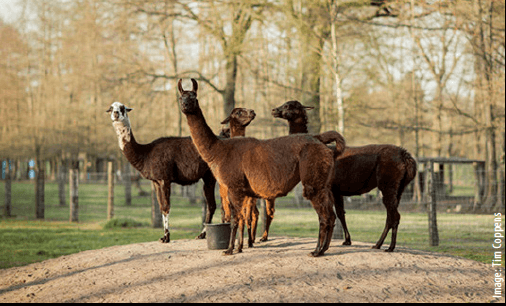 According to a new study published
in the journal Cell Tuesday by
an international team of researchers,
antibodies found in the blood of llamas
were able to stave off Covid infections.
“This is one of the first antibodies
known to neutralize SARS-CoV-2,”
Jason McLellan, from the University of
Texas at Austin and co-author of the
study, said in a statement.
The researchers built on previous
research from four years ago in which
they found that the antibodies from
a then nine-month-old llama named
Winter were able to neutralize both
SARS-CoV-1 and MERS-CoV viruses
over six weeks. Luckily, the antibodies
from Winter –who’s now four years
old– also staved off SARS-CoV-2, the
virus that causes Covid-19.
Surprisingly, this isn’t the first time
llamas have been used in antibody
research, as The New York Times
reports. Llama antibodies have been
used in work related to HIV and influenza,
where they helped discover
promising therapies. Thanks to the
llamas’ antibodies’ small size, they can
connect with different parts of the
virus more easily. “The binding of this
antibody to spike is able to prevent attachment
and entry, which effectively
neutralizes the virus,” Daniel Wrapp,
Dartmouth ...
According to a new study published
in the journal Cell Tuesday by
an international team of researchers,
antibodies found in the blood of llamas
were able to stave off Covid infections.
“This is one of the first antibodies
known to neutralize SARS-CoV-2,”
Jason McLellan, from the University of
Texas at Austin and co-author of the
study, said in a statement.
The researchers built on previous
research from four years ago in which
they found that the antibodies from
a then nine-month-old llama named
Winter were able to neutralize both
SARS-CoV-1 and MERS-CoV viruses
over six weeks. Luckily, the antibodies
from Winter –who’s now four years
old– also staved off SARS-CoV-2, the
virus that causes Covid-19.
Surprisingly, this isn’t the first time
llamas have been used in antibody
research, as The New York Times
reports. Llama antibodies have been
used in work related to HIV and influenza,
where they helped discover
promising therapies. Thanks to the
llamas’ antibodies’ small size, they can
connect with different parts of the
virus more easily. “The binding of this
antibody to spike is able to prevent attachment
and entry, which effectively
neutralizes the virus,” Daniel Wrapp,
Dartmouth ...
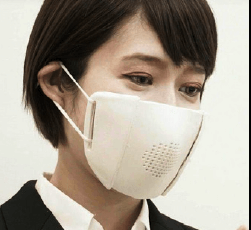 Japanese startup Donut Robotics
has developed a way to turn the
ubiquitous coronavirus face mask into
the latest tech gadget. You place the CMask
over the top of your regular face
mask. A Bluetooth connection to your
phone lets you dictate messages or
make calls. The system can also translate
speech into different languages, a
feature Donut originally developed for
its Cinnamon robot. The translation
feature will require a subscription.
Another feature is the ability to send
your voice out from your phone. It can
be hard to hear people talking from
under face masks, so this digital loudspeaker
concept could come in handy
in classrooms or meeting rooms where
you have to stay at a distance from the
people you're talking to.
Donut will soon open up preorders
for Japan at a price of around $40 (£32,
AU$60). ...
Read full text:
Japanese startup Donut Robotics
has developed a way to turn the
ubiquitous coronavirus face mask into
the latest tech gadget. You place the CMask
over the top of your regular face
mask. A Bluetooth connection to your
phone lets you dictate messages or
make calls. The system can also translate
speech into different languages, a
feature Donut originally developed for
its Cinnamon robot. The translation
feature will require a subscription.
Another feature is the ability to send
your voice out from your phone. It can
be hard to hear people talking from
under face masks, so this digital loudspeaker
concept could come in handy
in classrooms or meeting rooms where
you have to stay at a distance from the
people you're talking to.
Donut will soon open up preorders
for Japan at a price of around $40 (£32,
AU$60). ...
Read full text:
 Japanese artist Takashi Murakami announced
that he would be creating a
limited-edition collection of 300 prints
with his signature flower and skull designs
in support of the Black Lives Matter cause.
Now, it is available to purchase
via the shopping app NTWRK. Each
print is priced at US$800, and buyers
will be picked through a lottery
to purchase one out of six prints
he has created for the movement. ...
Japanese artist Takashi Murakami announced
that he would be creating a
limited-edition collection of 300 prints
with his signature flower and skull designs
in support of the Black Lives Matter cause.
Now, it is available to purchase
via the shopping app NTWRK. Each
print is priced at US$800, and buyers
will be picked through a lottery
to purchase one out of six prints
he has created for the movement. ...
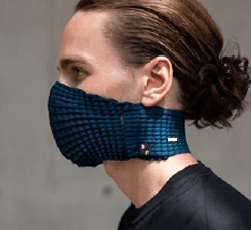 Beta(MSK) by Petit Pli is a washable
fabric face mask for the coronavirus
pandemic made from recycled
plastic bottles with pleats that adjust
around the wearer’s nose and chin.
The mask is the first item for adults
made by Petit Pli, a wearable technology
company that was the winner of
Dezeen Awards wearable design of the
year 2018 for its collection of expandable
children's clothes.
“I created Petit Pli with the ambition
of reducing waste and plastic pollution
generated by the wearable industry,”
Petit Pli founder Ryan Mario Yasin
told Dezeen. “Petit Pli Beta(MSK) is our
solution to reducing waste and inspiring
humanity to embrace reusable
masks to save them from living on our
ocean floors for 450 years.” ...
Beta(MSK) by Petit Pli is a washable
fabric face mask for the coronavirus
pandemic made from recycled
plastic bottles with pleats that adjust
around the wearer’s nose and chin.
The mask is the first item for adults
made by Petit Pli, a wearable technology
company that was the winner of
Dezeen Awards wearable design of the
year 2018 for its collection of expandable
children's clothes.
“I created Petit Pli with the ambition
of reducing waste and plastic pollution
generated by the wearable industry,”
Petit Pli founder Ryan Mario Yasin
told Dezeen. “Petit Pli Beta(MSK) is our
solution to reducing waste and inspiring
humanity to embrace reusable
masks to save them from living on our
ocean floors for 450 years.” ...
 The express purpose of Harvard’s
six-week online eating course ($30)
is to take nutrition back to the basics
through quizzes, worksheets, and easy
recipes (because deciding what to eat
for dinner shouldn’t be a brain-teaser).
“Harvard experts have created a
six-week plan that can boost your
health by showing you simple ways to
eat more healthfully,” reads the course
description. “This online course is an
engaging, empowering, and exciting
way to learn.” In other words, it takes
the drama out of your food choices so
you can eat your meals in peace.
Although the course is designed to
take a month and a half, it’s self-paced
—meaning that you can move through
Harvard’s seven steps to healthy eating
at your own leisure. “There is so much
Harvard nutrition course
Helps you learn to eat healthier in 6 weeks.
Image: www.robins.af.mil
nutrition information available today
—much of it is confusing and conflicting—
that it can seem difficult to
make the best choices,” says Harvard
Health. “But in this new course, our
experts distilled the latest nutrition science
into easy steps you can take each
day to help you improve your diet, set
achievable goals, and then take positive
steps to reach them.”
In the first week, you’ll learn how to
reorganize your kitchen with nutrition
in mind, keep your first food journal,
shop smart at the grocery store, and
read a nutrition label like a pro. Week
two will be all about mastering your
mornings, from prepping a fueling
breakfast to scheduling time to sweat. ...
The express purpose of Harvard’s
six-week online eating course ($30)
is to take nutrition back to the basics
through quizzes, worksheets, and easy
recipes (because deciding what to eat
for dinner shouldn’t be a brain-teaser).
“Harvard experts have created a
six-week plan that can boost your
health by showing you simple ways to
eat more healthfully,” reads the course
description. “This online course is an
engaging, empowering, and exciting
way to learn.” In other words, it takes
the drama out of your food choices so
you can eat your meals in peace.
Although the course is designed to
take a month and a half, it’s self-paced
—meaning that you can move through
Harvard’s seven steps to healthy eating
at your own leisure. “There is so much
Harvard nutrition course
Helps you learn to eat healthier in 6 weeks.
Image: www.robins.af.mil
nutrition information available today
—much of it is confusing and conflicting—
that it can seem difficult to
make the best choices,” says Harvard
Health. “But in this new course, our
experts distilled the latest nutrition science
into easy steps you can take each
day to help you improve your diet, set
achievable goals, and then take positive
steps to reach them.”
In the first week, you’ll learn how to
reorganize your kitchen with nutrition
in mind, keep your first food journal,
shop smart at the grocery store, and
read a nutrition label like a pro. Week
two will be all about mastering your
mornings, from prepping a fueling
breakfast to scheduling time to sweat. ...
 Once you’re stressed out, it’s hard
to escape from it. ... According
to functional medicine doctor, Mark
Hyman, MD, there’s a solution: an
“UltraBath.” ... which is essentially a
bath loaded with everything you need
to melt your sweat away in minutes.
“For the lazy among us (including me),
an UltraBath is a secret weapon against
stress,” he says.
You only need a handful of ingredients
for your UltraBath —all things you
probably already have at home. “Add
two cups of Epsom salt (which contains
magnesium, the relaxation mineral),
a half-cup of baking soda, and
10 drops of lavender oil (which lowers
cortisol) to a very hot bath,” Dr. Hyman
says. “Then, add one stressed human
and soak for 20 minutes. Guaranteed to
induce relaxation.”
If you really want to super-charge
your stress-relief, take a handful of
deep breaths before you hop on the
tub. Dr. Hyman says most people hold
their breath often or breathe shallow,
anxious breaths. So when you do the
opposite, you allow your body to relax.
“Take five deep breaths and observe
how differently you feel after,” he
says. “Deep, slow, full breaths have a
profound effect on resetting the stress
response, because the relaxation
nerve (or vagus nerve) goes through
your diaphragm and is activated with
every deep breath.” ...
Once you’re stressed out, it’s hard
to escape from it. ... According
to functional medicine doctor, Mark
Hyman, MD, there’s a solution: an
“UltraBath.” ... which is essentially a
bath loaded with everything you need
to melt your sweat away in minutes.
“For the lazy among us (including me),
an UltraBath is a secret weapon against
stress,” he says.
You only need a handful of ingredients
for your UltraBath —all things you
probably already have at home. “Add
two cups of Epsom salt (which contains
magnesium, the relaxation mineral),
a half-cup of baking soda, and
10 drops of lavender oil (which lowers
cortisol) to a very hot bath,” Dr. Hyman
says. “Then, add one stressed human
and soak for 20 minutes. Guaranteed to
induce relaxation.”
If you really want to super-charge
your stress-relief, take a handful of
deep breaths before you hop on the
tub. Dr. Hyman says most people hold
their breath often or breathe shallow,
anxious breaths. So when you do the
opposite, you allow your body to relax.
“Take five deep breaths and observe
how differently you feel after,” he
says. “Deep, slow, full breaths have a
profound effect on resetting the stress
response, because the relaxation
nerve (or vagus nerve) goes through
your diaphragm and is activated with
every deep breath.” ...
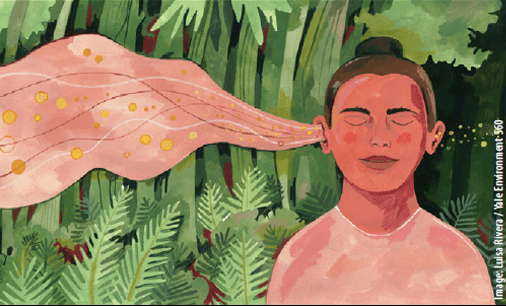 As the global population soars,
cities and towns sprawl out, and
roads stretch into even the most remote
parts the world, quiet is becoming
increasingly scarce. The noise of
buzz saws and trucks infiltrate deep
into the Amazon rainforest. The blast
of ship horns ring out over the Arctic
Ocean. The U.S. has become a highly
developed landscape, with just a fraction
of its original wilderness remaining,
split up into parks and protected
areas. Now, even in these refuges, cars,
planes, motorboats, helicopters, and
crowds contribute to the growing din.
A 2017 study by scientists at Colorado
State University and the National
Park Service found that human noise
doubled background sounds in 63
percent of U.S. protected areas. ...
Now, a growing coalition of environmental
organizations, scientists,
and grassroots activists are working to
protect and restore quiet places. Scientists
at Colorado State University and
the National Park Service are working
to document where quiet has been
lost and the most prominent drivers of
noise in the places people go to escape
it. Local activists in Hawaii and Washington
state are petitioning policymakers
to reduce or stop helicopter and
plane flyovers near wilderness areas.
And the nonprofit Quiet Parks International
is turning public attention to the
fragility of quiet by flagging remaining
quiet areas as worthy of special protection.
...
Read full text:
As the global population soars,
cities and towns sprawl out, and
roads stretch into even the most remote
parts the world, quiet is becoming
increasingly scarce. The noise of
buzz saws and trucks infiltrate deep
into the Amazon rainforest. The blast
of ship horns ring out over the Arctic
Ocean. The U.S. has become a highly
developed landscape, with just a fraction
of its original wilderness remaining,
split up into parks and protected
areas. Now, even in these refuges, cars,
planes, motorboats, helicopters, and
crowds contribute to the growing din.
A 2017 study by scientists at Colorado
State University and the National
Park Service found that human noise
doubled background sounds in 63
percent of U.S. protected areas. ...
Now, a growing coalition of environmental
organizations, scientists,
and grassroots activists are working to
protect and restore quiet places. Scientists
at Colorado State University and
the National Park Service are working
to document where quiet has been
lost and the most prominent drivers of
noise in the places people go to escape
it. Local activists in Hawaii and Washington
state are petitioning policymakers
to reduce or stop helicopter and
plane flyovers near wilderness areas.
And the nonprofit Quiet Parks International
is turning public attention to the
fragility of quiet by flagging remaining
quiet areas as worthy of special protection.
...
Read full text:
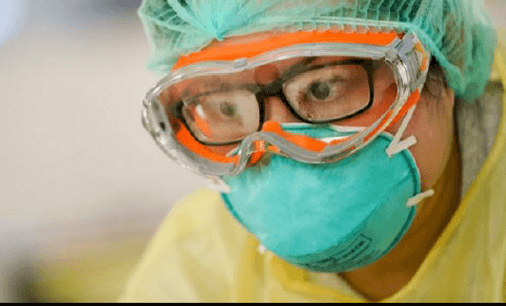 Millions of people around the
world could be exposed to dangerous
levels of heat stress —a dangerous
condition which can cause organs
to shut down. Many live in developing
countries, and do jobs that expose them
to potentially life threatening conditions.
These include being out in the
open on farms and building sites or
indoors in factories and hospitals.
Global warming will increase the
chances of summer conditions that
may be “too hot for humans” to work
in. When we caught up with Dr Jimmy
Lee, his goggles were steamed up and
there was sweat trickling off his neck.
An emergency medic, he’s labouring in
the stifling heat of tropical Singapore to
care for patients with Covid-19.
There’s no air conditioning —to
prevent the virus being blown around—
and he notices that he and his colleagues
become “more irritable”. And
his personal protective equipment,
makes things worse by creating a
sweltering ‘micro-climate’. “It really
hits you when you first go in there,” Dr
Lee says, “and it’s really uncomfortable
over a whole shift of eight hours
—it affects morale.” One danger is that
overheating can slow down their ability
to do something that’s vital for medical
staff —make quick decisions. Another
is that they may ignore the warning
signs of what’s called heat stress and
keep on working till they collapse...
Read full text:
Millions of people around the
world could be exposed to dangerous
levels of heat stress —a dangerous
condition which can cause organs
to shut down. Many live in developing
countries, and do jobs that expose them
to potentially life threatening conditions.
These include being out in the
open on farms and building sites or
indoors in factories and hospitals.
Global warming will increase the
chances of summer conditions that
may be “too hot for humans” to work
in. When we caught up with Dr Jimmy
Lee, his goggles were steamed up and
there was sweat trickling off his neck.
An emergency medic, he’s labouring in
the stifling heat of tropical Singapore to
care for patients with Covid-19.
There’s no air conditioning —to
prevent the virus being blown around—
and he notices that he and his colleagues
become “more irritable”. And
his personal protective equipment,
makes things worse by creating a
sweltering ‘micro-climate’. “It really
hits you when you first go in there,” Dr
Lee says, “and it’s really uncomfortable
over a whole shift of eight hours
—it affects morale.” One danger is that
overheating can slow down their ability
to do something that’s vital for medical
staff —make quick decisions. Another
is that they may ignore the warning
signs of what’s called heat stress and
keep on working till they collapse...
Read full text:
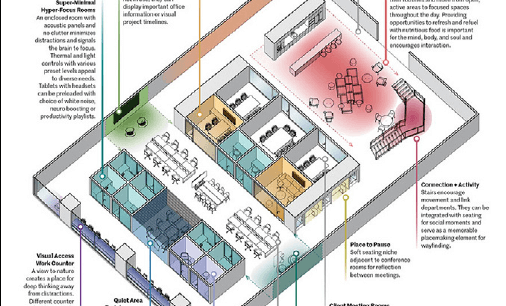 At any given point in time, about
half the people in a workplace
are probably not neurotypical —i.e.,
their brain function and behavior
don’t fall within a range that experts
consider typical. This could be for a
variety of reasons, including conditions
like autism spectrum disorder,
events such as a traumatic brain injury,
or mental health challenges such
as depression and stress.
The HOK [www.hok.com] report “Designing
a Neurodiverse Workplace”
suggests a variety of design strategies
for building a workplace that is more
inclusive of these human conditions.
This must go hand in hand with HR
policies such as promoting a flexible
work culture, permitting the use of
noise-canceling headphones, and providing
assistive software and technology
for those who might need it. These
measures can keep people engaged
and satisfied with the workplace even
as remote working becomes more
widely accepted. As diversity and
inclusion architect Toby Mildon says
in the report, “If we design workplaces
with different impairments, disabilities
and conditions at the forefront of our
thinking, we will make workplaces
better for everybody.”
The graphic below [go to link] from
HOK suggests one potential setup for a
neurodiverse workplace. ...
Read full text, find graphic:
Read full text:
At any given point in time, about
half the people in a workplace
are probably not neurotypical —i.e.,
their brain function and behavior
don’t fall within a range that experts
consider typical. This could be for a
variety of reasons, including conditions
like autism spectrum disorder,
events such as a traumatic brain injury,
or mental health challenges such
as depression and stress.
The HOK [www.hok.com] report “Designing
a Neurodiverse Workplace”
suggests a variety of design strategies
for building a workplace that is more
inclusive of these human conditions.
This must go hand in hand with HR
policies such as promoting a flexible
work culture, permitting the use of
noise-canceling headphones, and providing
assistive software and technology
for those who might need it. These
measures can keep people engaged
and satisfied with the workplace even
as remote working becomes more
widely accepted. As diversity and
inclusion architect Toby Mildon says
in the report, “If we design workplaces
with different impairments, disabilities
and conditions at the forefront of our
thinking, we will make workplaces
better for everybody.”
The graphic below [go to link] from
HOK suggests one potential setup for a
neurodiverse workplace. ...
Read full text, find graphic:
Read full text:
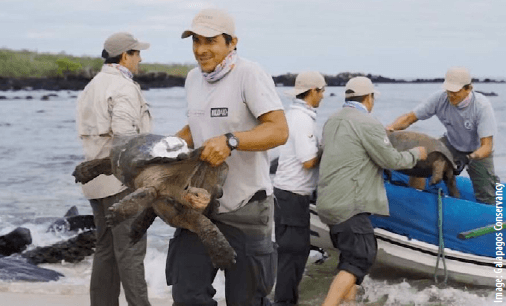 The Española tortoise program on
the Galapagos Islands has become
one of the most successful captive
breeding programs ever undertaken in
the world. Created in the mid-1960s
to save that species from extinction,
it collected the last remaining 14
tortoises on Española island —the only
place in the world they are found.
Now, they’ve all made the trip back
home, 55 years later, to live out the
rest of their days in retirement on their
island’s restored ecosystem.
The 14 giant Española tortoises (plus
one that had been at the San Diego
zoo) produced 1,900 offspring over
the decades which have slowly been
reintroduced on the island —many of which have survived to adulthood and
have since bred, creating a population
of roughly 2,300 children and grandchildren
of the original 15.
One giant tortoise dubbed “Diego”
managed to contribute to approximately
40% of the offspring repatriated to
the island before two weeks ago joining
his brood where he was taken almost
80 years ago. “This captive breeding
program, in addition to the management
actions implemented on Española
island, give us peace of mind that we
managed to save a species that would
otherwise have become extinct. ...
Visit and donate, if you can:
The Española tortoise program on
the Galapagos Islands has become
one of the most successful captive
breeding programs ever undertaken in
the world. Created in the mid-1960s
to save that species from extinction,
it collected the last remaining 14
tortoises on Española island —the only
place in the world they are found.
Now, they’ve all made the trip back
home, 55 years later, to live out the
rest of their days in retirement on their
island’s restored ecosystem.
The 14 giant Española tortoises (plus
one that had been at the San Diego
zoo) produced 1,900 offspring over
the decades which have slowly been
reintroduced on the island —many of which have survived to adulthood and
have since bred, creating a population
of roughly 2,300 children and grandchildren
of the original 15.
One giant tortoise dubbed “Diego”
managed to contribute to approximately
40% of the offspring repatriated to
the island before two weeks ago joining
his brood where he was taken almost
80 years ago. “This captive breeding
program, in addition to the management
actions implemented on Española
island, give us peace of mind that we
managed to save a species that would
otherwise have become extinct. ...
Visit and donate, if you can:

 A precise temperature setting and innovative steam technology
brings out the taste, aroma and texture of any type of bread. You can also use the
BALMUDA without steam, to bake cookies or reheat frozen food. store.moma.org
A precise temperature setting and innovative steam technology
brings out the taste, aroma and texture of any type of bread. You can also use the
BALMUDA without steam, to bake cookies or reheat frozen food. store.moma.org
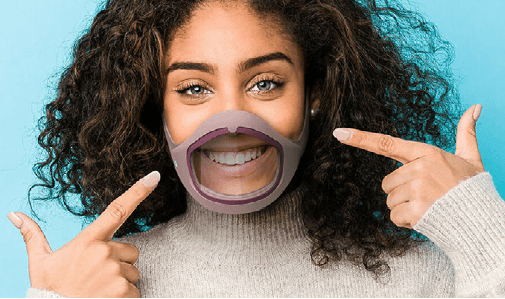 Apart from a magnetic frame and anti-fog film system for the transparent opening,
Cliu is also a “smart” mask that can be synced with a smartphone app. Cliu offers the hitech
version with integrated Bluetooth, microphone and GPS. cliu.it
Apart from a magnetic frame and anti-fog film system for the transparent opening,
Cliu is also a “smart” mask that can be synced with a smartphone app. Cliu offers the hitech
version with integrated Bluetooth, microphone and GPS. cliu.it
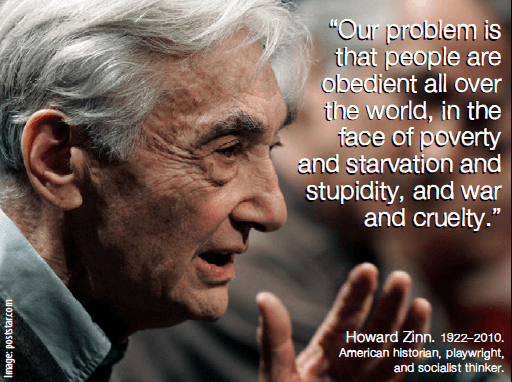 “Our problem is
that people are
obedient all over
the world, in the
face of poverty
and starvation and
stupidity, and war
and cruelty.”
“Our problem is
that people are
obedient all over
the world, in the
face of poverty
and starvation and
stupidity, and war
and cruelty.”
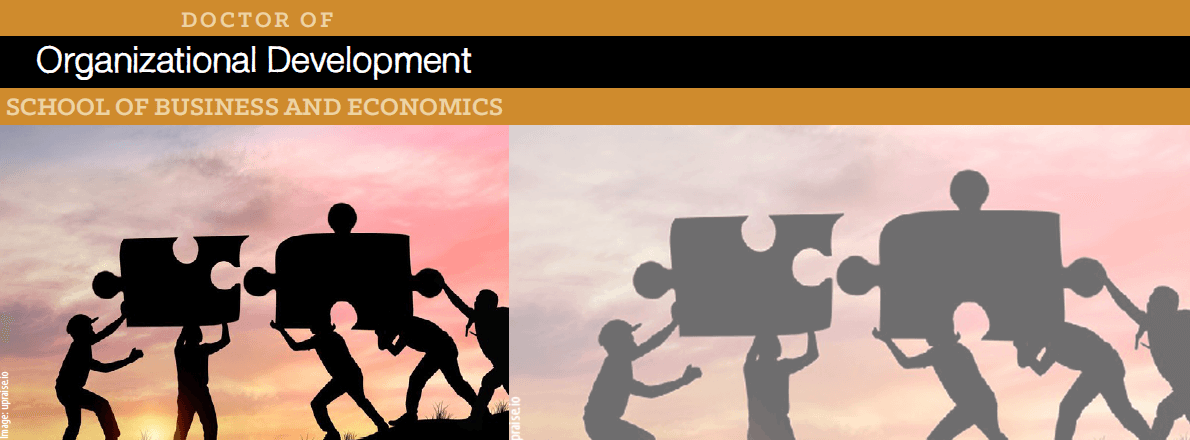 The Doctor of Organizational Development
program objective is to
help students pursue higher education
faculty positions or business leadership
or consulting positions in a broad
range of business, nonprofit, military,
and government jobs. Doctorate’s
Degree in Organizational Development
understand organization systems
in the context of their changing
environments
Use strategic and systemic thinking
in the management and change of
organizations as systems, design and
execute strategies for learning and
change across levels of the system
(individual, group, inter-group, whole
organization, inter-organization and
communities) to move in more desired
directions.
AIU’s Doctorate degree in Organizational
Development goes one step
further by allowing students to study
and research multiple key areas of
computer science to develop a unique
foundation of practical knowledge and
computer science theory.
Your AIU Distance Learning Doctorate
program in Organizational
Development will be a custom-made
program, designed just for you by
you and your advisor. This flexibility
to meet your needs is seldom found
in other distance learning programs.
Our program does not require every
student to study the same subjects and
use the same books and other learning
materials as every other student.
Instead our online Doctoral programs
are designed just for you. They are
individually designed to meet your
needs and help you to reach your professional
and personal goals.
The Doctor of Organizational Development
program objective is to
help students pursue higher education
faculty positions or business leadership
or consulting positions in a broad
range of business, nonprofit, military,
and government jobs. Doctorate’s
Degree in Organizational Development
understand organization systems
in the context of their changing
environments
Use strategic and systemic thinking
in the management and change of
organizations as systems, design and
execute strategies for learning and
change across levels of the system
(individual, group, inter-group, whole
organization, inter-organization and
communities) to move in more desired
directions.
AIU’s Doctorate degree in Organizational
Development goes one step
further by allowing students to study
and research multiple key areas of
computer science to develop a unique
foundation of practical knowledge and
computer science theory.
Your AIU Distance Learning Doctorate
program in Organizational
Development will be a custom-made
program, designed just for you by
you and your advisor. This flexibility
to meet your needs is seldom found
in other distance learning programs.
Our program does not require every
student to study the same subjects and
use the same books and other learning
materials as every other student.
Instead our online Doctoral programs
are designed just for you. They are
individually designed to meet your
needs and help you to reach your professional
and personal goals.
 Atlantic International University is accredited by the Accreditation Service for International
Schools, Colleges and Universities (ASIC). ASIC Accreditation is an internationally
renowned quality standard for colleges and universities. Visit ASIC’s Directory of Accredited
Colleges and Universities. ASIC is a member of CHEA International Quality Group
(CIQG) in the USA, an approved accreditation body by the Ministerial Department of the Home Office
in the UK, and is listed in the International Directory of the Council for Higher Education Accreditation
(CHEA). The University is based in the United States and was established by corporate charter in 1998.
Atlantic International University is accredited by the Accreditation Service for International
Schools, Colleges and Universities (ASIC). ASIC Accreditation is an internationally
renowned quality standard for colleges and universities. Visit ASIC’s Directory of Accredited
Colleges and Universities. ASIC is a member of CHEA International Quality Group
(CIQG) in the USA, an approved accreditation body by the Ministerial Department of the Home Office
in the UK, and is listed in the International Directory of the Council for Higher Education Accreditation
(CHEA). The University is based in the United States and was established by corporate charter in 1998.
 In some cases, accredited colleges
may not accept for transfer courses and degrees
completed at unaccredited colleges, and some
employers may require an accredited degree as
a basis for eligibility for employment. Potential
students should consider how the above may affect
their interests, AIU respects the unique rules and
regulations of each country and does not seek to
influence the respective authorities. In the event
that a prospective student wishes to carry out any
government review or process in regards to his
university degree, we recommend that the requirements
of such are explored in detail with the relevant
authorities by the prospective student as the
university does not intervene in such processes.
AIU students can be found in over 180 countries,
they actively participate and volunteer
in their communities as part of their academic
program and have allocated thousands of service
hours to diverse causes and initiatives. AIU
programs follow the standards commonly used by
colleges and universities in the United States with
regards to the following: academic program
structure, degree issued, transcript, and
other graduation documents.
AIU graduation documents can include
an apostille and authentication from the
US Department of State to facilitate their
use internationally.
In some cases, accredited colleges
may not accept for transfer courses and degrees
completed at unaccredited colleges, and some
employers may require an accredited degree as
a basis for eligibility for employment. Potential
students should consider how the above may affect
their interests, AIU respects the unique rules and
regulations of each country and does not seek to
influence the respective authorities. In the event
that a prospective student wishes to carry out any
government review or process in regards to his
university degree, we recommend that the requirements
of such are explored in detail with the relevant
authorities by the prospective student as the
university does not intervene in such processes.
AIU students can be found in over 180 countries,
they actively participate and volunteer
in their communities as part of their academic
program and have allocated thousands of service
hours to diverse causes and initiatives. AIU
programs follow the standards commonly used by
colleges and universities in the United States with
regards to the following: academic program
structure, degree issued, transcript, and
other graduation documents.
AIU graduation documents can include
an apostille and authentication from the
US Department of State to facilitate their
use internationally.
| Dr. Franklin Valcin President/Academic Dean |
Dr. José Mercado Chief Executive Officer Chairman of the Board of Trustees |
Ricardo González, PhD Provost |
| Dr. Ricardo Gonzalez Chief Operation Officer and MKT Director |
Linda Collazo Logistics Coordinator |
Dr. Silvia Restorff Academic Advisor |
| Dr. Miriam Garibaldi Viceprovost for Research |
Irina Ivashuk Alumni Association Coordinator |
Dr. Prakash Menon Academic Advisor |
| Clara Margalef Director of Special Projects of AIU |
Carlos Aponte Telecommunications Coordinator |
Dr. Nilani Ljunggren De Silva Academic Advisor |
| Juan Pablo Moreno Director of Operations |
David Jung Corporate/Legal Counsel |
Dr. Scott Wilson Academic Advisor |
| Paula Viera Director of Intelligence Systems |
Bruce Kim Advisor/Consultant |
Dr. Mohammad Shaidul Islam Academic Advisor |
| Felipe Gomez Design Director / IT Supervisor |
Thomas Kim Corporate/ Accounting Counsel |
Dr. Edgar Colon Academic Advisor |
| Daritza Ysla IT Coordinator |
Camila Correa Quality Assurance Coordinator |
Deborah Rodriguez Academic Tutor Coordinator |
| Nadeem Awan Chief Programming Officer |
Maricela Esparza Administrative Coordinator |
Cyndy Dominguez Academic Tutor Coordinator |
| Dr. Jack Rosenzweig Dean of Academic Affairs |
Chris Benjamin IT and Hosting Support |
Kinmberly Diaz Admissions Support Tutor |
| Dr. Edward Lambert Academic Director |
Mayra Bolivar Accounting Coordinator |
Amalia Aldrett Admissions Coordinator |
| Dr. Ariadna Romero Advisor Coordinator |
Roberto Aldrett Communications Coordinator |
Sandra Garcia Admissions Coordinator |
| Nadia Gabaldon Academic Coordinator |
Giovanni Castillo IT Support |
Jose Neuhaus Admissions Support |
| Jhanzaib Awan Senior Programmer |
Jaime Rotlewicz Dean of Admissions |
Junko Shimizu Admissions Coordinator |
| Leonardo Salas Human Resource Manager |
Dr. Mario Rios Academic Advisor |
Veronica Amuz Admissions Coordinator |
| Benjamin Joseph IT and Technology Support |
Michael Phillips Registrar’s Office |
Alba Ochoa Admissions Coordinator |
| Rosie Perez Finance Coordinator |
Rene Cordon Admissions Support |
Jenis Garcia Admissions Counselor |
| Chris Soto Admissions Counselor |
||
 The School of Business and Economics
allows aspiring and practicing
professionals, managers, and entrepreneurs
in the private and public sectors
to complete a self paced distance
learning degree program of the highest
academic standard.
The ultimate goal is to empower
learners and help them take advantage
of the enormous array of resources
from the world environment in order
to eliminate the current continuum of
poverty and limitations.
Degree programs are designed for
those students whose professional experience has been in business,
marketing, administration, economics,
finance and management.
The School of Business and Economics
allows aspiring and practicing
professionals, managers, and entrepreneurs
in the private and public sectors
to complete a self paced distance
learning degree program of the highest
academic standard.
The ultimate goal is to empower
learners and help them take advantage
of the enormous array of resources
from the world environment in order
to eliminate the current continuum of
poverty and limitations.
Degree programs are designed for
those students whose professional experience has been in business,
marketing, administration, economics,
finance and management.
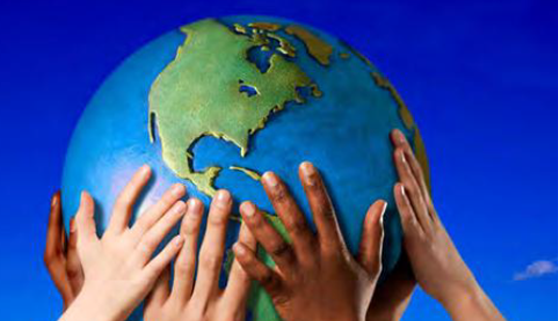 The School of Social and Human Studies
is focused on to the development of
studies which instill a core commitment
to building a society based on social and
economic justice and enhancing opportunities
for human well being.
The founding principles lie on the
basic right of education as outlined
in the Declaration of Human Rights.
We instill in our students a sense of
confidence and self reliance in their
ability to access the vast opportunities
available through information channels,
the world wide web, private, public,
nonprofit, and nongovernmental organizations in an ever expanding
global community.
Degree programs are aimed towards
those whose professional life has been
related to social and human behavior,
with the arts, or with cultural studies.
The School of Social and Human Studies
is focused on to the development of
studies which instill a core commitment
to building a society based on social and
economic justice and enhancing opportunities
for human well being.
The founding principles lie on the
basic right of education as outlined
in the Declaration of Human Rights.
We instill in our students a sense of
confidence and self reliance in their
ability to access the vast opportunities
available through information channels,
the world wide web, private, public,
nonprofit, and nongovernmental organizations in an ever expanding
global community.
Degree programs are aimed towards
those whose professional life has been
related to social and human behavior,
with the arts, or with cultural studies.
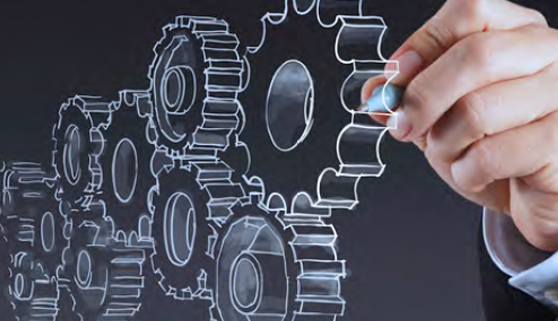 The School of Science and Engineering
seeks to provide dynamic, integrated,
and challenging degree programs
designed for those whose experience
is in industrial research, scientific production,
engineering and the general
sciences. Our system for research and
education will keep us apace with the
twenty-first century reach scientific
advance in an environmentally and
ecologically responsible manner to allow
for the sustainability of the human
population. We will foster among our
students a demand for ethical behavior,
an appreciation for diversity, an understanding
of scientific investigation, knowledge of design innovation, a
critical appreciation for the importance
of technology and technological change
for the advancement of humanity.
The School of Science and Engineering
seeks to provide dynamic, integrated,
and challenging degree programs
designed for those whose experience
is in industrial research, scientific production,
engineering and the general
sciences. Our system for research and
education will keep us apace with the
twenty-first century reach scientific
advance in an environmentally and
ecologically responsible manner to allow
for the sustainability of the human
population. We will foster among our
students a demand for ethical behavior,
an appreciation for diversity, an understanding
of scientific investigation, knowledge of design innovation, a
critical appreciation for the importance
of technology and technological change
for the advancement of humanity.
 With access to a global catalog created and maintained collectively by more than
9,000 participating institutions, AIU students have secured excellent research
tools for their study programs.
With access to a global catalog created and maintained collectively by more than
9,000 participating institutions, AIU students have secured excellent research
tools for their study programs.